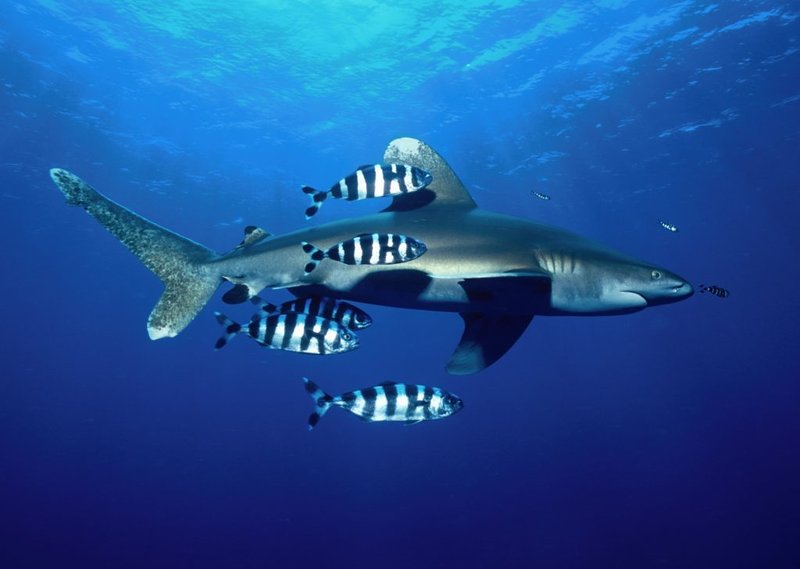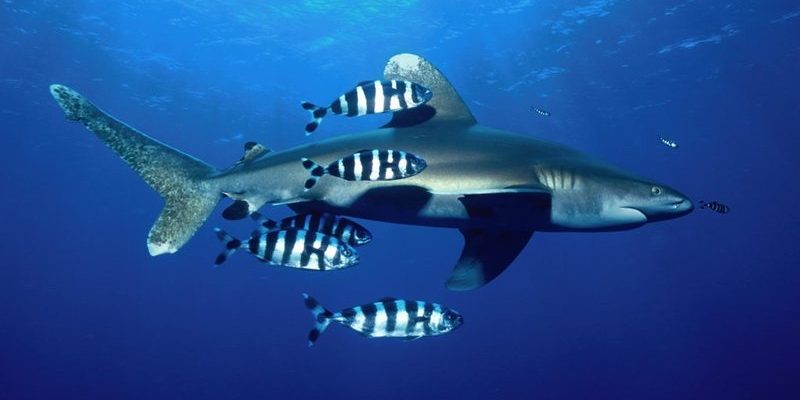
Here’s the thing: sharks aren’t just mindless predators. They’re essential players in the planet’s health. When we think about marine ecosystems, it’s wild to realize how intertwined every species is, almost like a complex web of life with sharks at the heart of it. Let’s dive into the depths and explore how these magnificent creatures impact their environment.
Sharks as Apex Predators
Sharks are often referred to as apex predators, meaning they sit at the top of the food chain in marine environments. So, what does that really mean? Simple: they help regulate the populations of other fish species. This regulation is crucial because it keeps the ecosystem balanced. When shark numbers dwindle, it can lead to overpopulation of smaller fish, which then overconsume the vegetation. It’s a domino effect—much like a chain reaction where one small change can lead to significant impacts elsewhere.
Imagine a classroom where the teacher (the shark) is suddenly removed. Without guidance, the students (the fish) may run wild, disrupting the entire environment. Sharks hunt not just for food; they also help maintain the health of their prey populations. Healthy prey populations contribute to the overall health of coral reefs and seagrass beds, which serve as habitats for many marine species.
The Balance of Species
Here’s something fascinating: sharks often target weaker or sick individuals among their prey. This behavior promotes genetic health within fish populations. By keeping populations strong and diverse, sharks help sustain healthy ecosystems. It’s like a natural selection process happening right before our eyes!
When you think about it, sharks play a role similar to that of a forest fire in nature—it might seem destructive at first, but it creates room for new growth. Healthy environments need a balance, and sharks ensure that balance is maintained.
Impact on Bio-Diversity
Sharks significantly influence the biodiversity of marine ecosystems. They help maintain the variety of species in the ocean, which is essential for resilience against diseases, climate change, and other environmental pressures. The presence of sharks can lead to a richer variety of marine life.
Like a gardener tending to their plants, sharks help cultivate a thriving environment. When you have a diverse set of species, the ecosystem becomes more stable and capable of withstanding stressors. For instance, healthier coral reefs, which are crucial habitats for a myriad of marine life, are often found in areas where sharks are abundant.
You might be wondering how this all connects to human life. Well, biodiversity impacts everything—our fishing industries, tourism related to marine life, and even coastal protection! The loss of sharks could lead to a decline in these areas, affecting jobs and communities alike.
Sharks and Coral Reefs
Coral reefs are sometimes called the “rainforests of the sea” because of their incredible biodiversity. Sharks help keep these reefs healthy by controlling the populations of herbivorous fish, which graze on algae. If these fish populations explode without sharks to keep them in check, they can decimate the coral, leading to bleaching and death.
This relationship is a perfect example of symbiosis in nature. Sharks may seem like fierce hunters, but they are actually nurturing the habitats that support so many creatures. It’s a give-and-take relationship that shows just how interconnected life is beneath the waves.
Shark Conservation Challenges
Despite their importance, sharks face numerous threats. Overfishing, habitat loss, and climate change are pushing many species towards extinction. Shark finning, a practice where sharks are caught, their fins removed, and then they’re thrown back into the ocean to die, is particularly gruesome. This not only impacts shark populations but also disrupts the entire ecosystem.
Let’s break down some of the challenges:
- Overfishing: Many sharks are caught unintentionally in fishing nets or targeted in commercial fisheries.
- Habitat destruction: Coastal development and pollution can destroy the environments where sharks breed and feed.
- Climate change: Rising ocean temperatures and acidification affect the health of oceans, making it harder for sharks to thrive.
The loss of these creatures can lead to a tipping point, where marine ecosystems could shift dramatically, leading to consequences that we can’t often predict.
What Can We Do?
You might be asking, “What can I do to help?” Supporting conservation efforts is a great start. Whether it’s donating to marine conservation organizations, participating in local clean-up efforts, or simply spreading awareness about the importance of sharks, every little bit helps. Remember, taking steps to protect sharks is taking steps to protect our oceans.
The Role of Sharks in Culture and Economy
Beyond their ecological significance, sharks also play a vital role in our culture and economy. They’re featured prominently in art, literature, and film—who doesn’t think of “Jaws” when picturing a shark? This cultural presence often sparks interest in marine conservation, encouraging people to learn more about these magnificent creatures.
From an economic perspective, healthy shark populations contribute to ecotourism. Shark diving is a popular activity in many coastal regions, drawing visitors eager to see these creatures up close in their natural environments. This tourism not only boosts local economies but also fosters a sense of stewardship for marine life.
Shark Education and Awareness
Education is another key component of conservation. By teaching people about sharks’ roles in the ecosystem, we can foster respect and understanding. Many organizations run programs aimed at educating communities about the importance of conserving sharks and their habitats.
Sharing stories of shark encounters or discussing their importance in classrooms can transform perceptions. When people see sharks as vital components of marine life rather than villainous monsters, it can spur action on many levels.
Sharks are so much more than just fearsome predators; they are guardians of our oceans, helping to maintain the delicate balance of marine ecosystems. Understanding their role can shift our perspective and drive conservation efforts.
Every action counts, whether it’s supporting sustainable fishing practices, advocating for protected marine areas, or simply educating ourselves and others about the significance of sharks. Our oceans’ health is interconnected with the future of sharks, and as stewards of the planet, it’s our responsibility to ensure their survival.
So next time you think of a shark, remember that it’s a crucial piece of our ecological puzzle. Let’s work together to protect these magnificent creatures and ensure our oceans continue to thrive.

